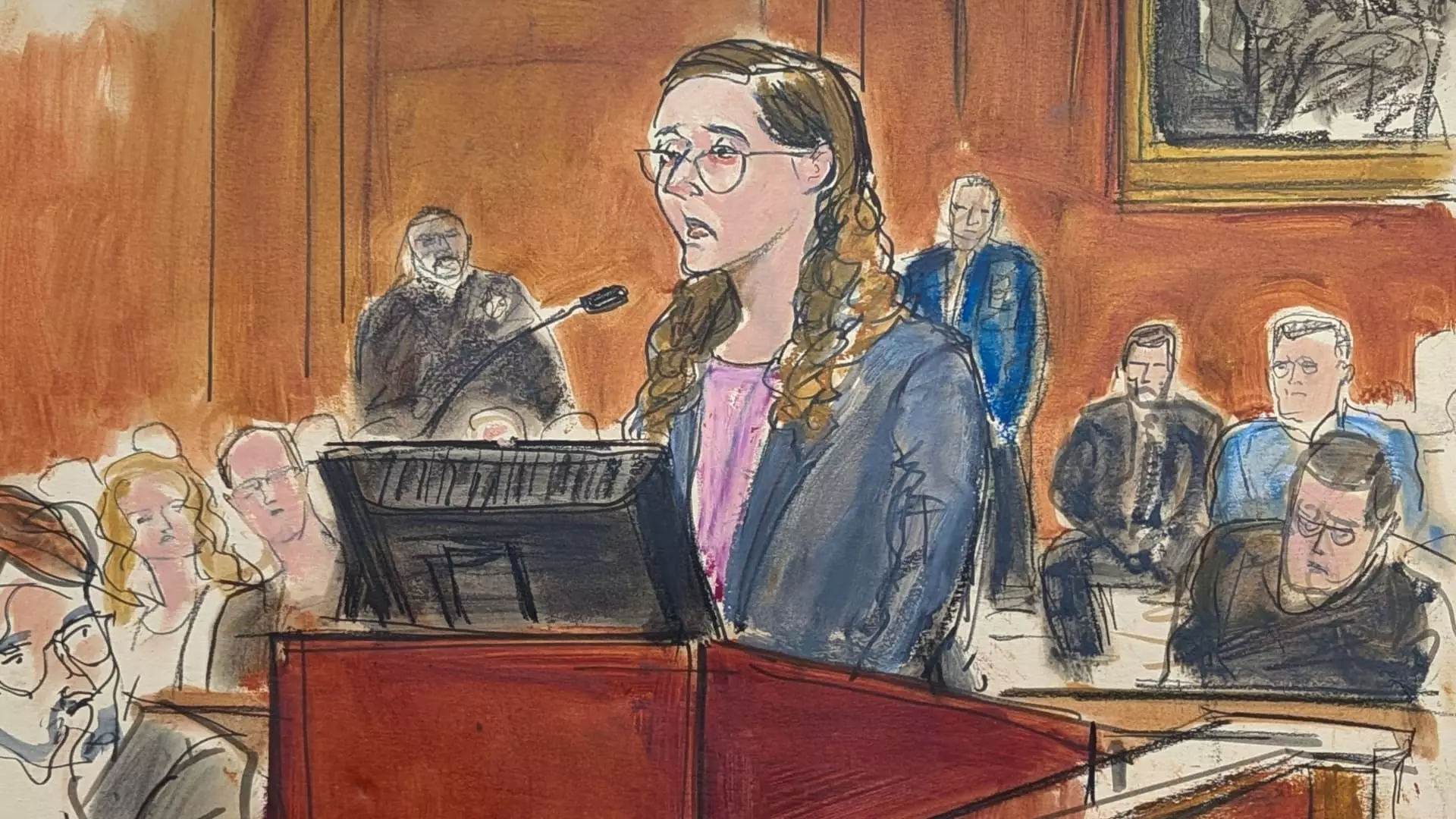The recent sentencing of Caroline Ellison, the former CEO of Alameda Research and pivotal figure in the FTX scandal, has starkly highlighted the legal repercussions of involvement in financial fraud within the volatile world of cryptocurrency. The federal court’s decision to give Ellison a two-year prison term, in contrast to a recommendation for no time behind bars, marks a critical turning point in an increasingly scrutinized financial landscape. As the crypto industry continues to grapple with significant distrust following the collapse of FTX, this case serves as a cautionary tale.
The shocking downfall of FTX, once a flagship platform in the cryptocurrency sector valued at an astounding $32 billion, underscores the depths of the fraud at play. Ellison, who was sentenced for her role in the scheme that siphoned away billions in customer funds, represents a larger narrative of how unchecked ambition can lead to devastating consequences. The judge, Lewis Kaplan, described the FTX fraud as potentially the “greatest financial fraud” in U.S. history, emphasizing the importance of her sentence in deterring future misconduct.
Ellison’s cooperation with prosecutors was undeniably a significant factor in the case. Judge Kaplan acknowledged her extensive collaboration, which culminated in the conviction of her former partner, Sam Bankman-Fried. However, the judge’s insistence that justice must serve as a deterrent against future financial misdeeds reflects the non-negotiable standards that will likely define the legal approach toward white-collar crime, especially in the rapidly evolving crypto economy.
The Duality of Cooperation and Consequences
Ellison’s case raises pressing questions about the balance of cooperation versus accountability in fraud cases. While she provided crucial evidence against Bankman-Fried, leading prosecutors to critical breakthroughs, her own participation in the fraud cannot be overlooked. This duality highlights a concerning trend in white-collar crime, where individuals may feel tempted to engage in fraudulent activities, relying on the potential of leniency in sentencing should they cooperate later.
Ellison’s emotional testimony in court, filled with regret and a desire for redemption, paints a complex picture of individual accountability. Her admission of shame for not leaving FTX sooner resonates with many who have faced ethical dilemmas in the workplace. Yet, the fact remains that her actions contributed to significant harm, and the sentence reflects the court’s need to balance understanding with the imperative of justice.
The ramifications of Ellison’s sentencing extend far beyond her individual case; they signal a stricter stance against corporate malfeasance in the United States. As financial regulators and law enforcement agencies sharpen their focus on the cryptocurrency sector, companies operating in this space must prepare for closer scrutiny and potential consequences for unethical practices. Bankman-Fried’s 25-year sentence, which dwarfed Ellison’s, serves as a stark illustration of how the legal system may treat prominent figures in financial fraud cases, insulating them from the supposed advantages of cooperation.
Moreover, the upcoming sentences for two other former FTX executives, Gary Wang and Nishad Singh, will further clarify the threshold of accountability in the financial ecosystem surrounding cryptocurrency. Will they receive similar or harsher treatment, especially in light of Ellison’s cooperation? These questions will echo within the corridors of corporate boardrooms and amongst investors and consumers alike as they assess the integrity of cryptocurrency platforms.
As the crypto landscape evolves, every fraudulent act and attendant legal consequence influences the public’s perception and trust in this burgeoning industry. Caroline Ellison’s case is not merely an endpoint but rather a critical chapter in a much larger narrative concerning ethical behavior, corporate responsibility, and the future of cryptocurrency. The decisions made by judges and juries in such high-profile cases will set precedents, guiding future conduct and ultimately shaping the trajectory of the financial industry.
In the end, Ellison’s sentenced time serves as a crucial reminder: while cooperation may yield some initial benefits, the pursuit of fame and fortune at the cost of ethical integrity will invariably lead to severe repercussions. The cryptocurrency sphere must recognize this truth to foster a more trustworthy and lasting industry.

